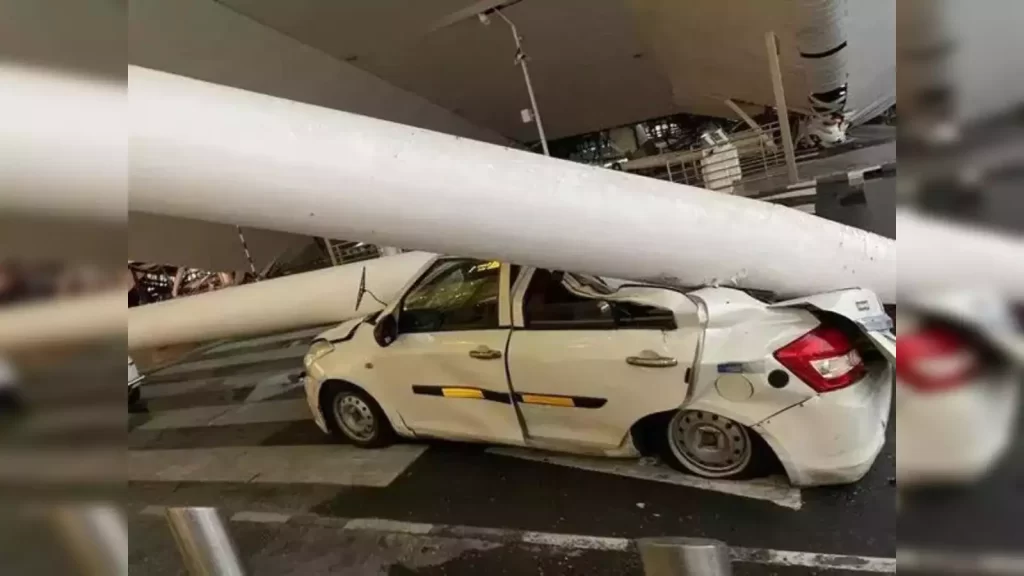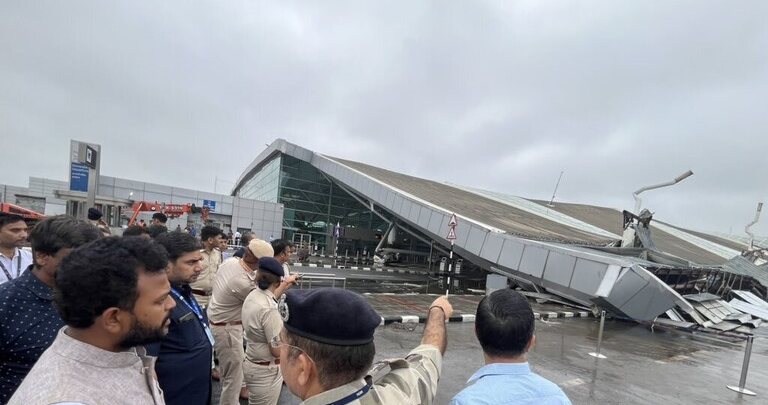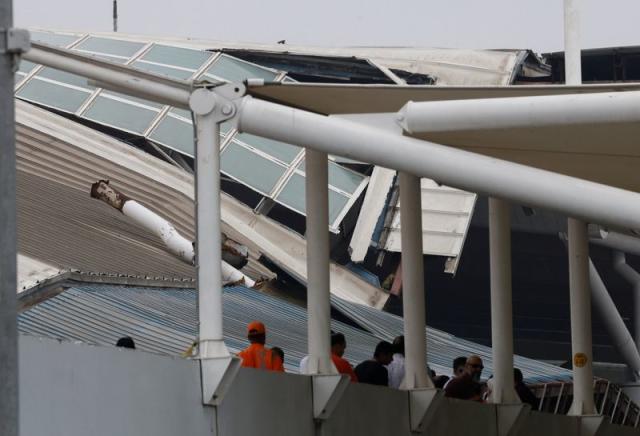New Delhi, India – Heavy rain and strong winds wreaked havoc at New Delhi’s main airport on Friday, causing a fatal roof collapse and significant disruptions to flight operations amid widespread flooding in the city.

The airport area was inundated with 148.5 millimeters of rain within three hours early in the morning, surpassing the average rainfall for the entire month of June, according to India’s meteorological department. Climate experts attribute such extreme weather patterns to climate change, exacerbated by recent severe heatwaves in the region.
A tragedy unfolded when a portion of the canopy and supporting beam at Terminal 1’s departure area collapsed, prompting the closure of flight operations until 2 p.m., as confirmed by India’s aviation minister, Kinjarapu Rammohan Naidu. The terminal, primarily servicing domestic flights, was evacuated following the incident, with authorities launching an inquiry into the collapse.

Rescue operations swiftly ensued, concluding with eight injured individuals transported to local hospitals, reported Atul Garg, director of the Delhi Fire Service. The aftermath saw the cancellation of at least eight flights and delays for 47 others, with departures from Delhi experiencing average delays of 40 minutes, according to Flightradar24 data.
Passengers scheduled to depart from Terminal 1 post-2 p.m. were redirected through the airport’s other two terminals, ensuring minimal disruption. Affected travelers were offered full refunds or alternative flight arrangements.
Television footage depicted a taxi crushed under a collapsed metal pillar near the terminal entrance, highlighting the severity of the incident that also damaged several parked cars. Witnesses recounted their ordeal, with many stranded due to flight cancellations and travel disruptions.
“I missed my morning flight due to floods and now my 2:10 p.m. Indigo flight to Bangalore has been cancelled,” shared Asif Ali, a businessman awaiting resolution outside Terminal 1.

GMR Airports Infrastructure, which operates Delhi International Airport and holds a majority stake, observed a temporary decline in its stock value following the incident. Frankfurt Airport’s Fraport, a minority shareholder in the Delhi airport, expressed ongoing collaboration with local authorities amid the crisis.
Beyond the airport, Delhi’s infrastructure woes were compounded as heavy rain inundated streets, including a tunnel near the venue of India’s previous G20 summit, stranding vehicles in deep water. Reports emerged of a wall collapse in southwest Delhi, heightening concerns for laborers potentially trapped in the debris.
Public transit services, including metro operations, experienced disruptions, while widespread power outages and traffic gridlocks added to the city’s challenges during the deluge.
Amid mounting criticism of infrastructure preparedness, India’s home ministry announced a review of Delhi’s monsoon readiness, involving local governments, weather authorities, and relevant stakeholders. Social media platforms buzzed with criticism of the city’s infrastructure shortcomings, echoing broader concerns over urban resilience.
The incident at Delhi’s airport comes amid India’s rapid expansion in aviation, with domestic air travel hitting record numbers in recent years. However, the spate of recent infrastructure failures at airports like Delhi and Jabalpur has reignited debates over regulatory oversight and project quality in the country.
While political figures spar over the implications, questions persist over the safety and preparedness of India’s critical infrastructure during the challenging monsoon season.
Source: Reuters



